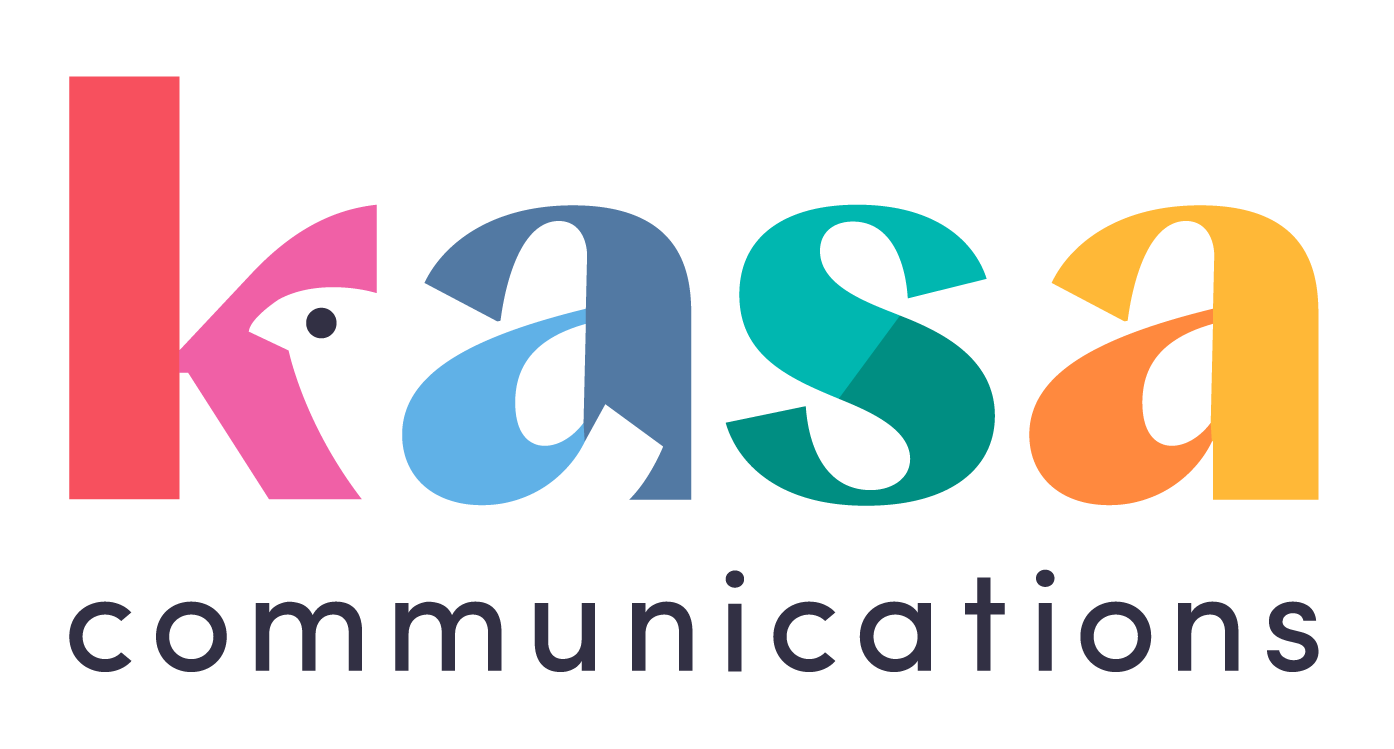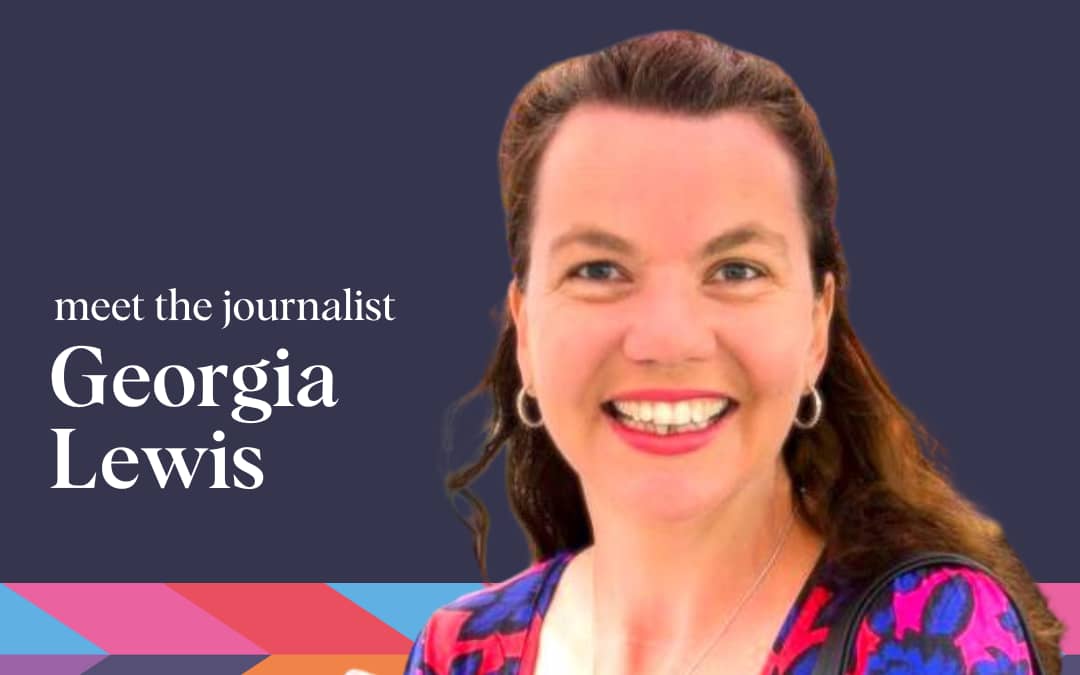For over 30 years, Georgia Lewis has worked in various editorial roles for a number of publications across the globe. She currently works as a freelancer, writing on topics from motoring sustainability to AI. We enjoyed catching up with her to hear her extraordinary story.
When did you first realise that you wanted to become a journalist?
I knew when I was seven this was what I wanted to do with my life. I used to invent magazines in sketchbooks, and when I played with my Barbie, she was always a newsreader. I’d dress her up and sit her on a little chair, and I’d have her doing a news report. I was always this massive journalism nerd.
I grew up in a rural Australian town called Bathurst. When I was 15 I did work experience on my local newspaper, then I started writing about rugby for the local paper. This was 1991 and it was the Rugby World Cup. I love rugby – my dad was a referee. It was being played in the UK that year, so due to the time zone I’d get up in the middle of the night and watch it with my dad. I’d write my report on the match and, because this was before email and I didn’t have a driving licence, dad would drive me to the local paper and I’d put my typewritten story under the door of the newspaper office, so that it could be put into that day’s edition.

How did you enter the profession (education/training etc)?
I went to university in my home town, which at the time had the country’s best journalism course, and I got a scholarship for it. So I was able to live at home while at university which saved a lot of money.
I did a journalism degree, and for the three years of that course, I worked for the Anglican Church in Australia on monthly church paper. The editor was not your typical Church paper editor. He gave me my own column when I was 18, which was a lot of fun. My columns challenged Church teaching on pretty much everything. I went to the Gay Lesbian Mardi Gras in Sydney and did a report on how great I thought it was. I wrote about sex and drugs. The bishop was very liberal – the first bishop to ordain women in Australia – so I got to cover that for the paper.
What was your first proper job in journalism?
During my university holidays, I did a bit of work on local papers in the area, filling in when other journalists were on a holiday. And then when I graduated, I just wanted to go to Sydney. I took a management trainee job with Pizza Hut, which was horrendous, but it got me the Sydney address I needed.
Within three months of moving there, I had my first full time job working for a business publishing company editing workplace safety and workers compensation newsletters. I did that for about a year and a half. It taught me the meaning of hard work, it really tightened up my writing style, which I think I needed, and taught me a lot of good discipline. But in the end, I was getting bored and really wanted to try my hand at consumer magazines.

How do your career progress after that?
Over the next 10 years, I worked on a free Time Out type magazine, For Me which was for housewives, and Slimming Magazine. I ended up as sub editor of the Aussie edition of the men’s magazine, FHM, which was every bit as wild as you might expect. The hours were insane, and it was very much work hard, play hard. It was literally every cliché about sex, drugs and rock’n’roll. The magazine was full of girls and cars and sport and pictures of horrific injuries and natural disasters, and stories about terrible murders. But it was an amazing team of people with some really talented writers.
Then I got an opportunity to move to Dubai working on a magazine called What’s On – like a monthly Time Out. It was a lot of fun – I got invited to every party in town. The pay was better money than Sydney, but the rents were completely extortionate.
I was then offered the opportunity to edit a motoring magazine. I’d always loved cars, though I have a bit of a chequered driving history. This was another great job with amazing press trips, like being flown to the UK to drive Land Rovers and Range Rovers through the mud!
The company itself was a pretty shonky Dubai operation that had no money and not many morals. But it was a good chance to get car contracts. From there, I was offered a job on The National, which is Abu Dhabi’s main newspaper, owned by the government – the Abu Dhabi Media Company. They were launching a Saturday edition. The Middle East weekend was Friday and Saturday, with Sunday to Thursday the working week, so a Saturday paper was like our Sunday papers here.
The Saturday edition had a motoring section and I was the first Deputy Motoring Editor. I was 32. I did that for a couple of years. It’s where I met my (British) husband. He was the online editor – an old-school office romance.

When did you move to London?
After five years in the Middle East, it felt like time to move on. It was 2011 and we had just got married. We both found work in London.
After an awful month with a content agency in Camden, I did bit of freelance and then got a job with a lovely publishing company called ISC, which is where I started to learn about oil and gas. After three or four years with them I was offered a job with Alain Charles Publishing and within nine months I became managing editor in charge of 10 magazines, with journalists to manage in London, Dubai and Bangalore. There was loads of travel, and I spent a lot of time going to Ghana, Nigeria, South Africa the Middle East and Europe, which was amazing.
When the pandemic hit things changed. Half my team in the London office were furloughed. We all had to take a 10 per cent pay cut and I was doing a lot more work. Then I came down with horrific stress-induced shingles – I was gaunt, tired, wasn’t sleeping, and was doing 14-hour days. I was just miserable. I thought I just need to get out of this as it isn’t healthy.
Looking back I think I actually had a bit of a mental breakdown. I had a panic attack outside a fish and chip shop when a kid on a scooter ran into my leg and I kicked off at the kid’s father, and it became about a lot more than just this kid on a scooter. I broke down on the footpath and my husband had to walk me home. I said to him I’m really hating my life right now. So I took a job as an editor with the Eurasia Group, which is a geopolitical risk consultancy. It was only 30 hours a week, for the same money I was on before and I was only responsible for the words I was editing. It was a nice manageable workload while I was getting my health back.
After eight months, I realised I was missing the writing and researching part of what I do. A friend put me in touch with a PR agency who were looking for a content writer on a freelance basis. When I got this offer of steady work them I thought, I’m just going to do it.
Luckily for me, it did work out. That was May 2021. I’ve been freelancing now for a bit over two years and it’s gone really well. My income has gone up year on year which I’m incredibly grateful for. I know a lot of people are having a really hard time. I’ve found that a lot of the work has come to me rather than me having to chase it, which is good.
What I’m loving is the variety. I’m currently editing a luxury magazine for one client, writing about electric cars in the UAE for someone else, proofreading brochures for a theatre company, writing about mobility and sustainable transport for an Australian client. And there’s a lovely ethical recruitment agency I work for interviewing people who have got jobs through ethical employers.
I never want to work in a proper office again and have no desire to commute again, or to deal with HR departments and give or receive performance reviews.
I’ve got to meet some really interesting people with amazing stories which is one of the big joys of doing what I’ve done for the last 30 years. It’s like no other job, where you get to meet people you would never meet and do things you would never do.
What do you say is the most famous person you’ve interviewed?
I think that would probably be Patrick Swayze. That was one of the greatest moments of my life. I was a real fan and actually cried when he died. Dirty Dancing is my favourite film. I got to interview him over the phone when I was working on FHM, he had a movie coming out where he was playing a sleazy golf professional. I was on my really old Nokia mobile, and the office was so noisy, I ended up going into a cupboard and sitting on a box. I was scheduled to have 15 minutes with him and we were chatting away having a great time. But then his PR came on the line and said it was time to end the call, and Patrick said, “No, she’s cool, let’s keep talking!”. I briefly met Arnold Schwarzenegger at a party, but for Patrick Swayze to tell his PR to go away was the ultimate fangirl moment. I was so excited – I’m still excited to speak about it!
What grabs your attention if someone comes to you with a story?
If I’m working on something and a pitch comes along that’s relevant I’ll obviously pounce on it. For example, I’m doing a lot of AI stuff right now, and I’ve had a few people come in with pitches that aren’t directly related to that. I’ve said I can’t really work with that pitch, but if you’re doing anything exciting with AI, I might be able to talk to someone and get you some coverage that way. So it’s got to be super relevant to what I’m doing.
I love doing anything automotive or automotive sustainability – low emission, zero emissions, electric cars. People can take a chance with me and I might be able to help them out, or I might not. I’m always polite if I can’t.
What’s the best way for people to get in touch with you?
LinkedIn is pretty easy. I’ve found it really useful in terms of getting work and making contacts. I’ve also got a contact form on my website which goes straight to my inbox.
Find Georgia on LinkedIn.
Visit her website Lewiseditorial.com.

